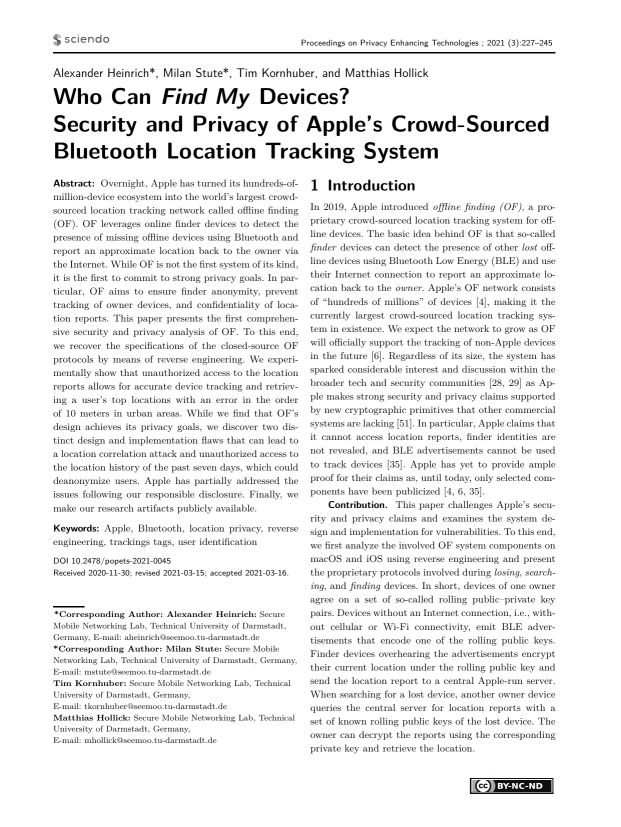Who Can Find My Devices? Security and Privacy of Apple’s Crowd-Sourced Bluetooth Location Tracking System
Authors: Alexander Heinrich (Secure Mobile Networking Lab, Technical University of Darmstadt, Germany), Milan Stute (Secure Mobile Networking Lab, Technical University of Darmstadt, Germany), Tim Kornhuber (Secure Mobile Networking Lab, Technical University of Darmstadt, Germany), Matthias Hollick (Secure Mobile Networking Lab, Technical University of Darmstadt, Germany)
Volume: 2021
Issue: 3
Pages: 227–245
DOI: https://doi.org/10.2478/popets-2021-0045
Abstract: Overnight, Apple has turned its hundreds-ofmillion-device ecosystem into the world’s largest crowdsourced location tracking network called offline finding (OF). OF leverages online finder devices to detect the presence of missing offline devices using Bluetooth and report an approximate location back to the owner via the Internet. While OF is not the first system of its kind, it is the first to commit to strong privacy goals. In particular, OF aims to ensure finder anonymity, prevent tracking of owner devices, and confidentiality of location reports. This paper presents the first comprehensive security and privacy analysis of OF. To this end, we recover the specifications of the closed-source OF protocols by means of reverse engineering. We experimentally show that unauthorized access to the location reports allows for accurate device tracking and retrieving a user’s top locations with an error in the order of 10 meters in urban areas. While we find that OF’s design achieves its privacy goals, we discover two distinct design and implementation flaws that can lead to a location correlation attack and unauthorized access to the location history of the past seven days, which could deanonymize users. Apple has partially addressed the issues following our responsible disclosure. Finally, we make our research artifacts publicly available.
Keywords: Apple, Bluetooth, location privacy, reverse engineering, trackings tags, user identification
Copyright in PoPETs articles are held by their authors. This article is published under a Creative Commons Attribution-NonCommercial-NoDerivs 3.0 license.


